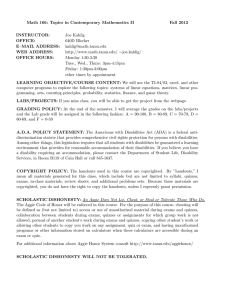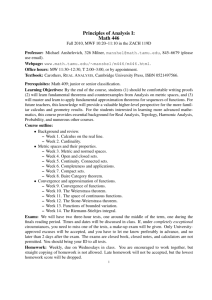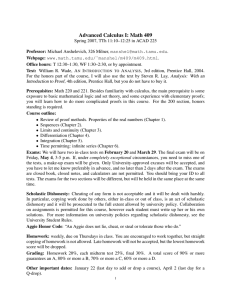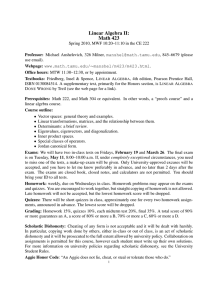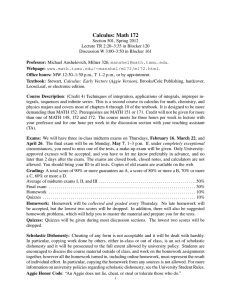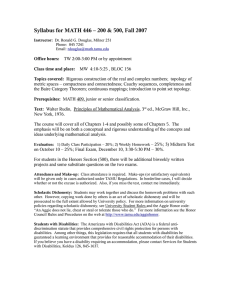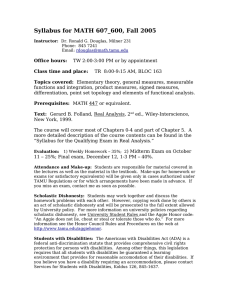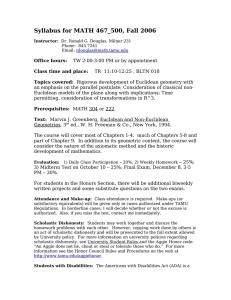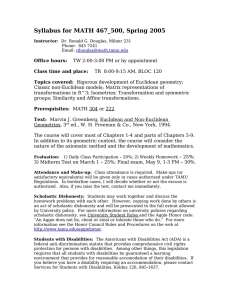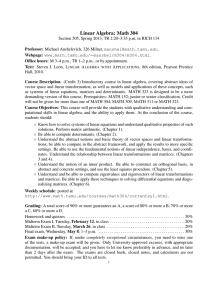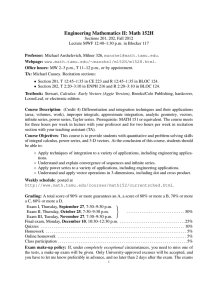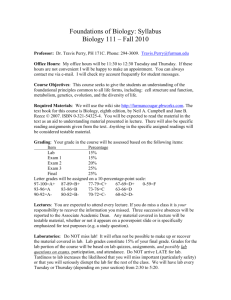Topics in Applied Mathematics (Special functions): Math 311
advertisement
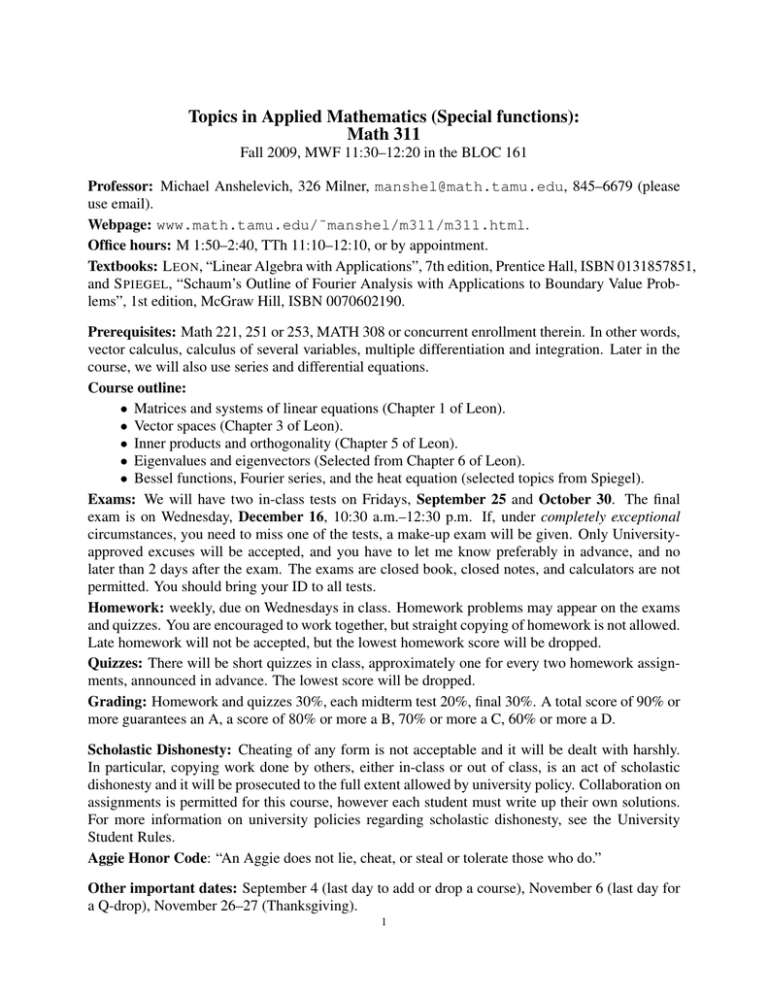
Topics in Applied Mathematics (Special functions): Math 311 Fall 2009, MWF 11:30–12:20 in the BLOC 161 Professor: Michael Anshelevich, 326 Milner, manshel@math.tamu.edu, 845–6679 (please use email). Webpage: www.math.tamu.edu/˜manshel/m311/m311.html. Office hours: M 1:50–2:40, TTh 11:10–12:10, or by appointment. Textbooks: L EON, “Linear Algebra with Applications”, 7th edition, Prentice Hall, ISBN 0131857851, and S PIEGEL, “Schaum’s Outline of Fourier Analysis with Applications to Boundary Value Problems”, 1st edition, McGraw Hill, ISBN 0070602190. Prerequisites: Math 221, 251 or 253, MATH 308 or concurrent enrollment therein. In other words, vector calculus, calculus of several variables, multiple differentiation and integration. Later in the course, we will also use series and differential equations. Course outline: • Matrices and systems of linear equations (Chapter 1 of Leon). • Vector spaces (Chapter 3 of Leon). • Inner products and orthogonality (Chapter 5 of Leon). • Eigenvalues and eigenvectors (Selected from Chapter 6 of Leon). • Bessel functions, Fourier series, and the heat equation (selected topics from Spiegel). Exams: We will have two in-class tests on Fridays, September 25 and October 30. The final exam is on Wednesday, December 16, 10:30 a.m.–12:30 p.m. If, under completely exceptional circumstances, you need to miss one of the tests, a make-up exam will be given. Only Universityapproved excuses will be accepted, and you have to let me know preferably in advance, and no later than 2 days after the exam. The exams are closed book, closed notes, and calculators are not permitted. You should bring your ID to all tests. Homework: weekly, due on Wednesdays in class. Homework problems may appear on the exams and quizzes. You are encouraged to work together, but straight copying of homework is not allowed. Late homework will not be accepted, but the lowest homework score will be dropped. Quizzes: There will be short quizzes in class, approximately one for every two homework assignments, announced in advance. The lowest score will be dropped. Grading: Homework and quizzes 30%, each midterm test 20%, final 30%. A total score of 90% or more guarantees an A, a score of 80% or more a B, 70% or more a C, 60% or more a D. Scholastic Dishonesty: Cheating of any form is not acceptable and it will be dealt with harshly. In particular, copying work done by others, either in-class or out of class, is an act of scholastic dishonesty and it will be prosecuted to the full extent allowed by university policy. Collaboration on assignments is permitted for this course, however each student must write up their own solutions. For more information on university policies regarding scholastic dishonesty, see the University Student Rules. Aggie Honor Code: “An Aggie does not lie, cheat, or steal or tolerate those who do.” Other important dates: September 4 (last day to add or drop a course), November 6 (last day for a Q-drop), November 26–27 (Thanksgiving). 1 Students with disabilities: Come talk to me no later than the first week of classes. “The Americans with Disabilities Act (ADA) is a federal anti-discrimination statute that provides comprehensive civil rights protection for persons with disabilities. Among other things, this legislation requires that all students with disabilities be guaranteed a learning environment that provides for reasonable accommodation of their disabilities. If you believe that you have a disability requiring an accommodation, please contact the Department of Student Life, Services for Students with Disabilities, in Room 126 of the Koldus Building or call 845–1637.” Attendance: According to the University Student Rules, absence for three or more class days requires a University-approved excuse and documentation. Keys to success: Attend class (of course :) Solve all the homework problems, well before the exams. Spend more than seven hours per week working on the problems. Form study groups to discuss the course material and homework problems. Read ahead in the text. All printed handouts and web-materials are protected by US Copyright Laws. No multiple copies can be made without written permission by the instructor.
